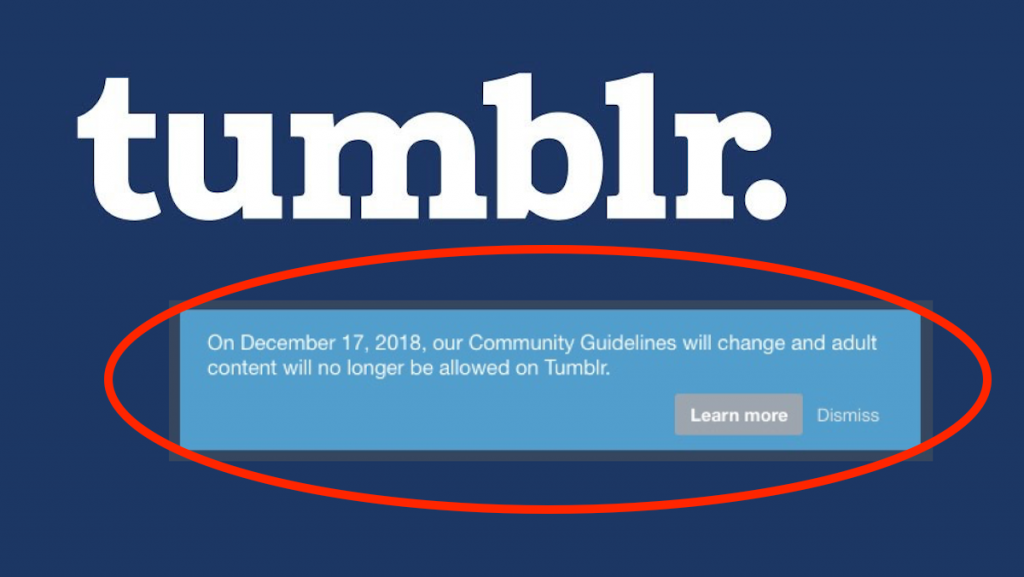Pornography
The BBC is worried that Tumblr’s new ban will cause a porn shortage
By Jonathon Van Maren
When I first spotted the link on Twitter, I thought it might be a joke. Unfortunately, it was not: The British Broadcasting Corporation (BBC) has actually published a column titled “Tumblr’s porn ban abandons the marginalized.” While “Tumblr has a major porn problem” which includes “images of child abuse,” the writer mourns, the site has also “long offered something different, and important.”
By which he means different and important porn. The “marginalized” must have access to pornography that suits their tastes. It is, presumably, a matter of social justice. From the once-prestigious BBC:
Founded 11 years ago, Tumblr is a platform where users can publish text, images and videos quickly, as well as share and comment on other submissions. The site’s popularity peaked in 2014. Yet as its use dwindled, its reputation as an alternative corner of the internet grew, not least as a place to find unique adult material.
Unlike typical pornography sites, which overwhelmingly cater to men, and serve an often narrow definition of what is attractive, Tumblr has been a home for something else – content tailored at vibrant LGBT communities, or for those with tastes you might not necessarily share with all your friends.
If society deems it acceptable for any porn to be on the internet, then that acceptance must surely be inclusive. Unlike most of those other sites Mr D’Onofrio speaks of, Tumblr has been a space where different body types are sexually celebrated, not degraded.
In 2015, Cosmopolitan described Tumblr as a place where women “can explore their sexuality with the support of women without judgement or fear”. It argued that Tumblr’s design seemed to cater to different physical need: offering a slow, building stream of visual and emotional content – rather than the instant video gratification of sites designed with hurried male audiences in mind, fast-forward button and all.
Many on Tumblr have been fearing a porn ban since the network was acquired by fading web giant Yahoo in 2013. That time, the adult content was allowed to remain. But in 2017, when Yahoo was acquired by Oath, the digital arm of telecoms giant Verizon, the writing was on the wall.
“I had feared this day would come,” wrote one user, who runs a fetish account, in response to the chief executive’s message on Monday. “I’m so sad to see this happen, and can’t believe I’ll be losing this blog. I honestly don’t know what I’ll do without it, but I truly hope that the kinky community comes up with a new place for us all to get together and share.”
…That change means marginalised people, those who are all-too-used to being ostracised in their offline lives, now face it in their online space too. Some of the internet’s most-needed communities are now homeless.
This article is stupid and delusional for a long list of reasons, the most prominent of which is the idea that any and all types of pornography are not easily available on the Internet. It is quite literally known as the Rule of the Internet: If you can conjure something up in your mind, no matter how perverse or perverted or wicked or bizarre, you will be able to find Internet pornography of that precise conjuration. I recognize that social justice warriors enjoy fantasizing about nonexistent oppression, but the idea that some communities face a porn shortage is simply ludicrous.
I debated a queer studies scholar, Dr. Annalise Trudell, on the Andrew Lawton Show last year, and she made much the same argument as the writer of this nonsensical news article. I pointed out the connections between pornography and sexual violence (which she affirmed), and highlighted the fact that the mainstreaming of sexual violence in our culture as the result of pornography was profoundly harmful to our social fabric and our relationships. Again, Dr. Trudell agreed, but said that the sort of porn that she liked—feminist, LGBT sort of stuff—was necessary. When I asked her why, she explained that queer people needed this porn to figure out how to have sex. That, apparently, was what she had needed it for.
Jessica Powell has also chimed in over at the New York Times, penning a column titled “The problem with banning pornography on Tumblr.” She concurs with the BBC, mourning the loss of same-sex smut that has apparently until now enriched the lives of many. It is a sign of just how crude and pathetic our culture has become that an imaginary porn shortage has become, to some, an issue of “social justice.”
____________________________________________
For anyone interested, my book on The Culture War, which analyzes the journey our culture has taken from the way it was to the way it is and examines the Sexual Revolution, hook-up culture, the rise of the porn plague, abortion, commodity culture, euthanasia, and the gay rights movement, is available for sale here.








